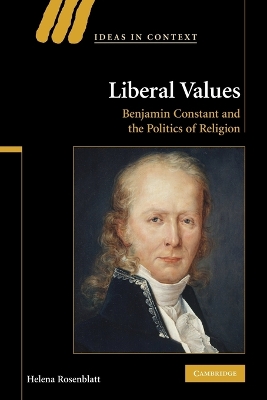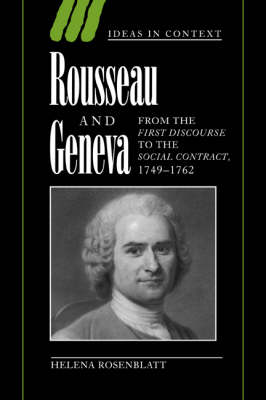Ideas in Context
3 total works
Liberal Values: Benjamin Constant and the Politics of Religion. Ideas in Context, Volume 92.
by Helena Rosenblatt
Published 1 January 2008
Professor Rosenblatt presents a study of Benjamin Constant's intellectual development into a founding father of modern liberalism, through a careful analysis of his evolving views on religion. Constant's life spanned the Enlightenment, the French Revolution, Napoleon's rise and rule, and the Bourbon Restoration. Rosenblatt analyzes Constant's key role in many of this era's heated debates over the role of religion in politics, and in doing so, exposes and addresses many misconceptions that have long reigned about Constant and his period. In particular, Rosenblatt sheds light on Constant's major, yet much-neglected work, De La Religion. Given that the role of religion is, once again, center-stage in our political, philosophical and historical arenas, Liberal Values constitutes a major revision of our understanding of the origins of modern liberalism.
Rousseau and Geneva reconstructs the main aspects of Genevan socio-economic, political and religious thought in the first half of the eighteenth century. In this way Dr Rosenblatt effectively contextualizes the development of Rousseau's thought from the First Discourse through to the Social Contract. Over time Rousseau has been adopted as a French thinker, but this adoption obscures his Genevan origin. Dr Rosenblatt points out that he is, in fact, a Genevan thinker and illustrates that Rousseau's classical republicanism, his version of natural law theory, his civil religion and his hostility to the arguments of doux commerce theorists are all responses to the political use of such arguments in Geneva. The author also points out that it was this relationship with Geneva that played an integral part in his development into an original political thinker.


